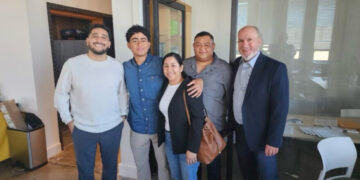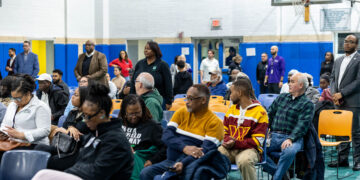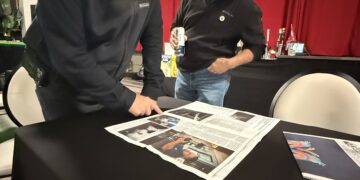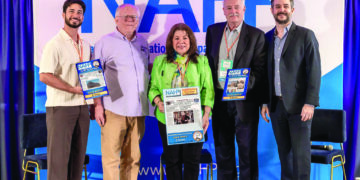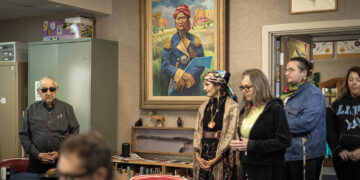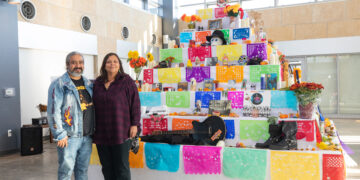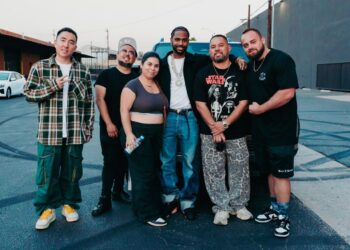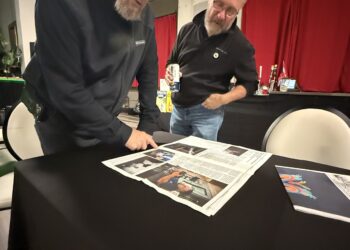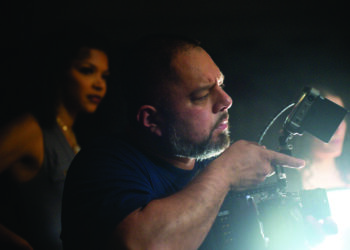Mexican-American, Ralph Arellano, 88, has been a part of historic union formations and key moments in history. He worked at a V8 Engine General Motors plant to pay his way through school. In the 60s, he joined the teaching staff at the University of Michigan-Flint, a move that later led to the unionization of teachers and the implementation of Black history and Black literature as part of the school curriculum. Growing up in a union family set his course for his future.
Before working as a teacher, Arellano worked as an assistant buyer in a department store.
“It was the heyday of the unions after World War II in the fifties and sixties, and they were really doing well,” Arellano said.
While his coworkers were forming a union at the department store, Arellano was being called to talk to management to report on their progress. Arellano refused. He was demoted because of that and sent to work in the warehouse.
That union never made it. “They fired a few people. Everybody became afraid to go any further,” he recalled.
When Arellano talks about why he believes so strongly in unions, he talks about the importance of the average worker. He also credits his education. Reading John Steinback novels taught him about “the people rather than the rich folks.”
“I think it was always sort of in my head about organizing and about what the workers did. I mean, workers did everything. And that was always kind of clear to me,” Arellano said.
Arellano remembers his youth growing up in a predominantly immigrant neighborhood.
“That background was, as it turned out, really important in my perspective,” Arellano said. As a former English teacher, he still makes sure to pick up a novel here and there, but he states that it’s important to read about marginalized perspectives. “I want to see us!”
For Arellano, it’s important to solve the problems that cause minority groups to be marginalized. When it comes to politics, though he has been on the side of Democratic politicians, he believes it’s important to start on a grassroots level, to get involved with your community and spark change from the bottom up.
“I’m more of problem solving. When you hear people complaining all the time, I don’t know. What are you going to do about it?”
It is this mentality that has kept him ferociously involved in activism. “I’m 88, and I’m pushing the young guys to start doing stuff,” Arellano said.
Arellano is a teacher through and through. He teaches the importance of political activism as well as the importance of seeking knowledge for oneself. During the Flint water crisis, he ran the Latinx Technology and Community Center in Flint – a 501(c) 3 non-profit which boasts a mission to “enhance the dignity and quality of life for the Flint and Genesee County Latinx community and other cultures.” The center teaches ESL and rights advocacy.
“I ran that center during the water crisis, and then we hired this young man who’s from an old family, and he really brought it up in 2020,” Arellano noted. “I’m not officially involved [any longer], but I stop by occasionally and visit.”
As the 2024 election approaches, Arellano has a lot to reflect on – like those union days that informed his political affiliations and his days as a teacher that instilled in him a love for advocacy.
When Kamala Harris visited Flint, Michigan in early October, Arellano was invited to the rally as a VIP guest.
“Yeah, that was great. The problem with it was I got to be there, but there was only one other Latino there in the VIP section,” said Arellano. The other Latinx person was Anna Robles, a Michigan activist.
Although Arellano has worked hard his whole life to be a part of the solution, there is still a long way to go for the Latinx community as a whole. According to the National Institutes of Health, only one percent of elected officials are Latinx while about 19% of the United States population is Latinx.
Arellano has been a part of the movement that fought for the marginalized. His whole life is a love letter to future generations. As he playfully puts it, he was “baptized a Democrat.” Though voting is the starting point, there is work to be done on a community level to ensure that the problems get solved definitively.
Arellano has said that this is not about his future, it’s about the next generation.






